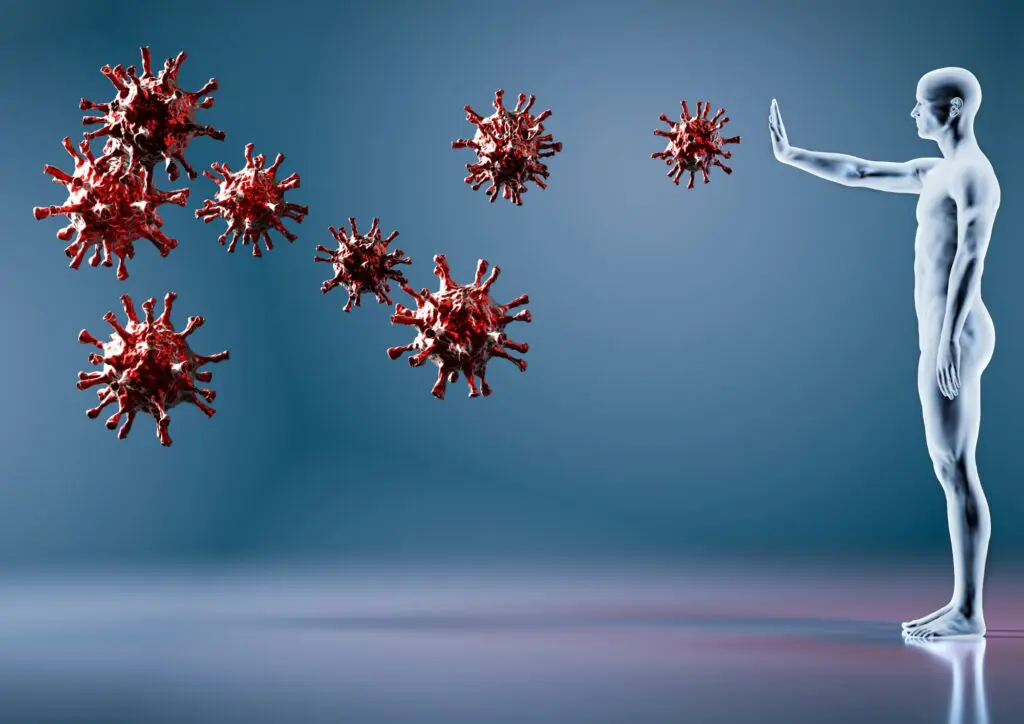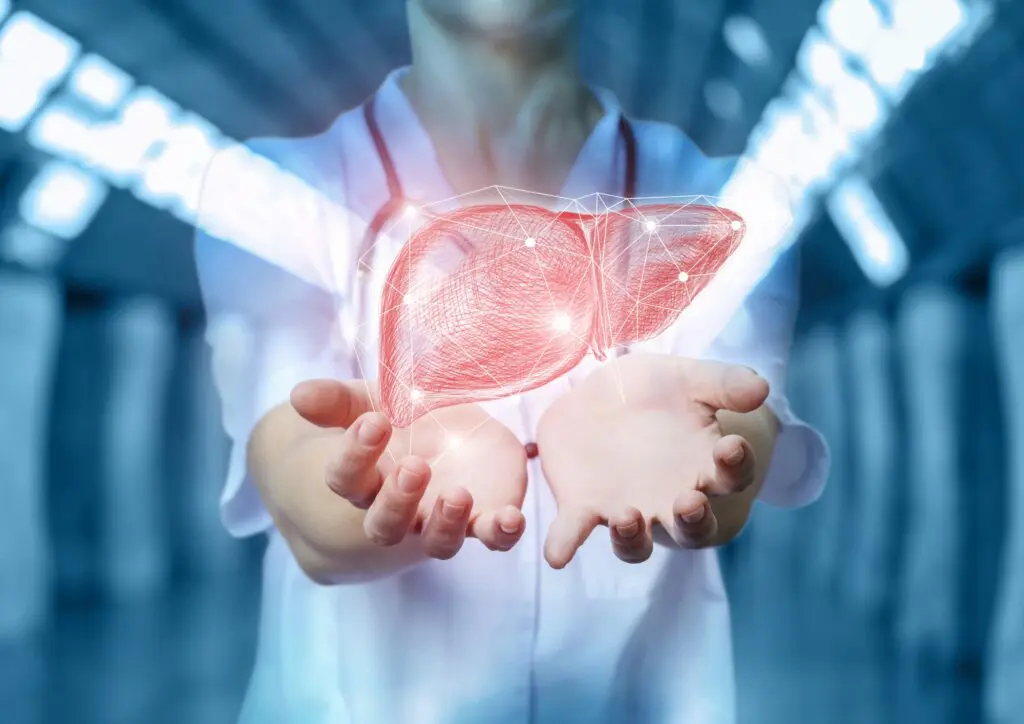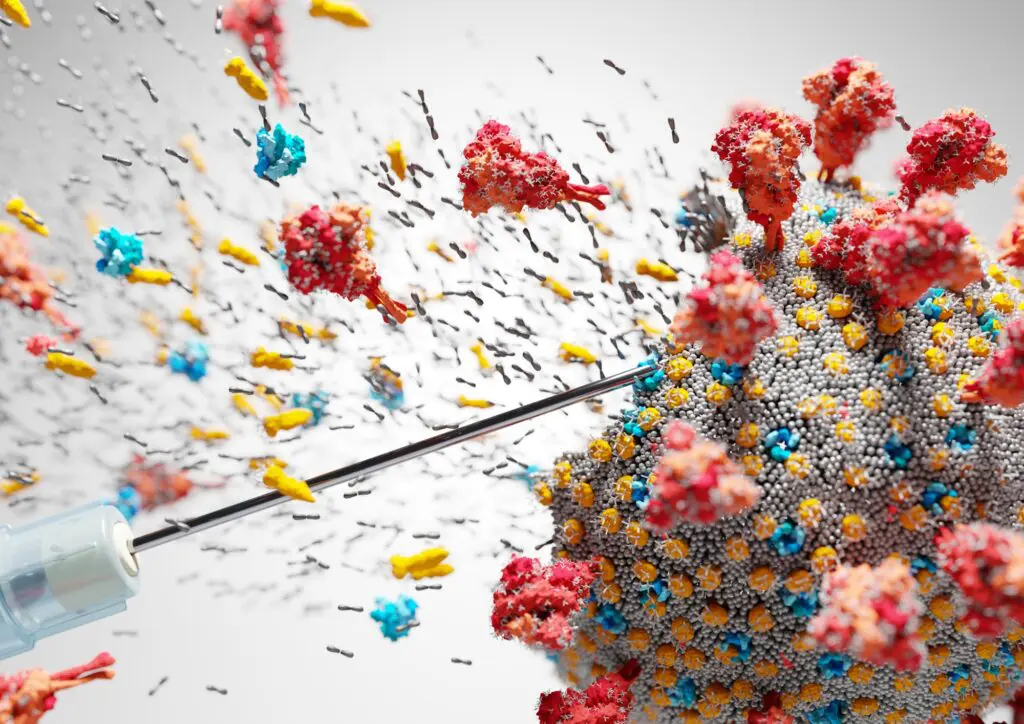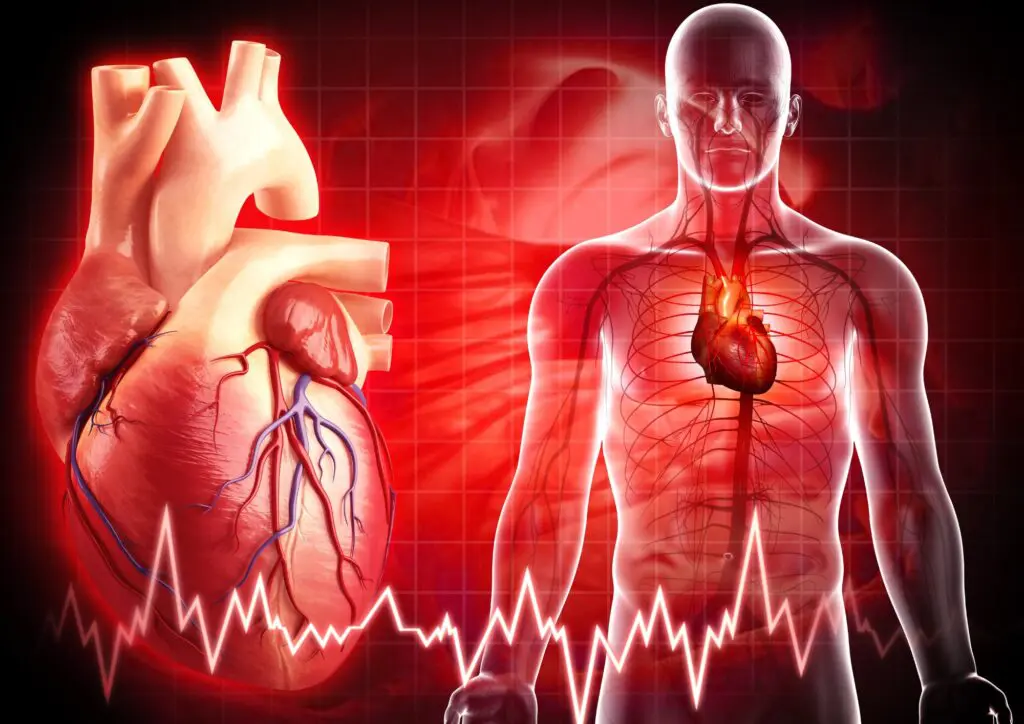Intravenous (IV) Vitamin C therapy has gained significant attention in recent years as a complementary approach to support various aspects of health and wellness.
This treatment involves administering high doses of Vitamin C directly into the bloodstream, bypassing the digestive system and allowing for higher concentrations to be achieved in the blood.
The ability to deliver such high doses directly into the bloodstream is a key factor in the therapeutic efficacy of IV Vitamin C, as it enables the body to achieve plasma concentrations that are not possible through oral supplementation alone.
Jump to...
Cancer Support

One of the primary areas where IV Vitamin C therapy has shown promise is in cancer support. Cancer patients often experience significant oxidative stress and inflammation, both of which can contribute to disease progression and reduced quality of life. High-dose Vitamin C administered intravenously has been shown to have pro-oxidant effects at high concentrations, selectively generating hydrogen peroxide in the extracellular space around cancer cells. This hydrogen peroxide can induce oxidative stress specifically in cancer cells, leading to their apoptosis (programmed cell death) while sparing normal, healthy cells. This selective cytotoxicity is a critical aspect of its potential role in adjunctive cancer therapy.
Moreover, IV Vitamin C is believed to enhance the efficacy of conventional cancer treatments such as chemotherapy and radiation therapy. Studies have suggested that Vitamin C can sensitize cancer cells to these treatments, potentially improving their effectiveness. Additionally, it may help mitigate some of the side effects associated with chemotherapy, such as fatigue, by reducing oxidative stress and inflammation.
Clinical evidence supports these benefits. A study published in Science Translational Medicine reported that IV Vitamin C could enhance the cytotoxic effects of chemotherapy in ovarian cancer cells, suggesting a potential role in improving chemotherapy outcomes. Another phase I clinical trial demonstrated that high-dose IV Vitamin C was well-tolerated and resulted in stable disease in patients with advanced cancer.
IV Vitamin C has also been shown to reduce inflammation and fatigue, improve mood, and enhance the overall quality of life in cancer patients undergoing treatment. This supportive role makes it a valuable adjunct to conventional cancer therapies, helping patients manage the physical and emotional challenges of cancer treatment.
Reduce Inflammation
IV Vitamin C therapy plays a significant role in reducing inflammation, which is a critical factor in the progression of many chronic diseases. Inflammation is the body’s natural response to injury and infection, but chronic inflammation can lead to conditions such as arthritis, cardiovascular disease, and even cancer. By leveraging the powerful anti-inflammatory properties of Vitamin C, IV therapy can help manage and reduce inflammation effectively.
Vitamin C is a potent antioxidant that neutralizes free radicals and reduces oxidative stress, which is a key driver of inflammation. High-dose Vitamin C can decrease the production of pro-inflammatory cytokines, which are signaling molecules that promote inflammation. By reducing these cytokines, Vitamin C helps to modulate the inflammatory response and prevent excessive tissue damage.
Studies have shown that IV Vitamin C can significantly reduce markers of inflammation. For example, a study published in the Journal of Translational Medicine found that high-dose intravenous Vitamin C therapy decreased levels of inflammatory markers such as C-reactive protein (CRP) and pro-inflammatory cytokines in patients with sepsis, a severe inflammatory condition. This reduction in inflammation was associated with improved clinical outcomes, suggesting that Vitamin C’s anti-inflammatory effects can have a substantial impact on health.
Another study published in Free Radical Biology and Medicine demonstrated that Vitamin C supplementation reduced inflammation in patients with chronic inflammatory diseases. The study highlighted that Vitamin C’s ability to enhance the antioxidant defense system and reduce oxidative stress was key to its anti-inflammatory effects. This research supports the use of high-dose Vitamin C in managing chronic inflammatory conditions, providing a scientific basis for its efficacy.
Furthermore, the role of Vitamin C in supporting the immune system also contributes to its anti-inflammatory effects. By enhancing the function of immune cells such as neutrophils and lymphocytes, Vitamin C helps to regulate the immune response and prevent chronic inflammation. This dual action of supporting immune health and reducing inflammation makes IV Vitamin C a powerful tool in managing inflammatory conditions.
Detoxification
In the context of detoxification, IV Vitamin C plays a crucial role due to its potent antioxidant properties. Our modern environment exposes us to a plethora of toxins, including pollutants, heavy metals, and various chemicals, which can accumulate in the body and lead to oxidative damage. Vitamin C neutralises free radicals and reactive oxygen species, thereby protecting cellular structures and DNA from damage. Its role in regenerating other antioxidants, such as glutathione, further enhances the body’s detoxification pathways. The liver, which is the primary organ responsible for detoxifying the body, benefits significantly from the antioxidant support provided by high doses of Vitamin C.
Additionally, IV Vitamin C has been explored for its potential in heavy metal detoxification. Heavy metals such as lead and mercury can accumulate in the body and cause various health issues. High-dose Vitamin C can bind to these metals and facilitate their excretion from the body, thereby reducing their toxic burden. This chelating effect makes it a valuable tool in integrative detoxification protocols.
A study published in the Journal of Trace Elements in Medicine and Biology indicated that IV Vitamin C therapy could effectively reduce blood lead levels in patients with elevated exposure. This evidence supports the role of IV Vitamin C in reducing the toxic burden of heavy metals, contributing to overall health and wellness.

Immune System Strengthening
The immune system also relies heavily on adequate levels of Vitamin C for optimal function. Vitamin C is known to enhance the production and function of white blood cells, including neutrophils, lymphocytes, and phagocytes, which are essential for identifying and eliminating pathogens. By increasing the activity of these immune cells, IV Vitamin C can enhance the body’s ability to fight off infections. This is particularly beneficial during times of increased immune challenge, such as flu season or when exposed to infectious diseases.
Furthermore, Vitamin C plays a role in modulating the immune response and reducing chronic inflammation. It helps in the production of cytokines, which are signaling molecules that guide the immune response. By reducing excessive inflammation, Vitamin C can help prevent tissue damage and support faster recovery from infections. Clinical studies have shown that IV Vitamin C can reduce the duration and severity of respiratory infections, making it a valuable tool in the management of viral infections such as the common cold and influenza.
During the COVID-19 pandemic, studies have explored the role of high-dose Vitamin C in reducing the severity of symptoms and improving outcomes in patients with severe respiratory illness. This research highlights the potential of IV Vitamin C as an adjunctive therapy in enhancing immune resilience and reducing the impact of viral infections.

Skin Health
Vitamin C is well-known for its role in promoting skin health. It is essential for the synthesis of collagen, a protein that is crucial for maintaining the skin’s structure and elasticity. High-dose IV Vitamin C can boost collagen production more effectively than oral supplementation, leading to healthier, more youthful-looking skin.
Collagen is a primary structural protein in the skin, providing it with strength and elasticity. Vitamin C is a cofactor for the enzymes involved in collagen synthesis, including prolyl and lysyl hydroxylase. These enzymes stabilize the collagen molecule and are essential for its proper functioning. By ensuring that these enzymes operate optimally, high levels of Vitamin C can significantly enhance collagen production. This increased collagen synthesis helps to maintain the skin’s elasticity and firmness, reducing the appearance of fine lines and wrinkles. The enhanced collagen matrix not only contributes to a youthful appearance but also supports the overall structural integrity of the skin.
In addition to its role in collagen synthesis, Vitamin C is a potent antioxidant that protects the skin from oxidative stress caused by environmental factors such as UV radiation and pollution. Oxidative stress can lead to the breakdown of collagen and elastin fibers in the skin, contributing to premature aging, hyperpigmentation, and skin damage. By neutralizing free radicals, Vitamin C helps to prevent these adverse effects, thereby maintaining the skin’s health and appearance. Regular administration of IV Vitamin C can ensure that the skin has a robust defense against oxidative damage, promoting a clearer, more radiant complexion.
Furthermore, high levels of Vitamin C are crucial for the repair of damaged skin and the healing of wounds. Vitamin C promotes the formation of new connective tissue by stimulating the proliferation of fibroblasts, the cells responsible for producing collagen and other extracellular matrix components. This is particularly important in the wound healing process, where rapid collagen deposition is necessary to close wounds and restore skin integrity. Additionally, Vitamin C supports the immune response required for healing by enhancing the function of various immune cells involved in the inflammatory phase of wound healing. This dual role in collagen synthesis and immune support makes Vitamin C an indispensable nutrient for skin repair and regeneration.
In summary, IV Vitamin C therapy offers multiple benefits for skin health by enhancing collagen production, providing antioxidant protection, and supporting wound healing. This comprehensive approach not only helps maintain youthful and elastic skin but also promotes overall skin health, making it a valuable addition to any skincare regimen.
Cardiovascular Health

Vitamin C is also beneficial for cardiovascular health. Its antioxidant properties and role in collagen synthesis contribute to the health of blood vessels and the cardiovascular system as a whole.
Vitamin C is essential for the production of collagen, which is a critical component of the blood vessels’ structural framework. Collagen provides the necessary support and flexibility to blood vessels, ensuring they can withstand the constant pressure of blood flow. By maintaining high levels of Vitamin C, the body can produce sufficient collagen to preserve the integrity of the vascular system. This structural integrity helps prevent vascular damage, reducing the risk of conditions such as aneurysms and ruptures, which are often precursors to severe cardiovascular diseases.
Additionally, Vitamin C plays a significant role in reducing oxidative stress within the cardiovascular system. Oxidative stress, caused by an imbalance between free radicals and antioxidants, is a major contributing factor to the development of cardiovascular diseases. It leads to the oxidation of low-density lipoprotein (LDL) cholesterol, which is a key step in the formation of atherosclerotic plaques. These plaques can narrow arteries and restrict blood flow, leading to conditions like atherosclerosis and coronary artery disease. By neutralizing free radicals, Vitamin C helps mitigate oxidative stress, thereby preventing the oxidation of LDL cholesterol and the subsequent development of atherosclerosis and other cardiovascular conditions.
Moreover, Vitamin C has been shown to help regulate cholesterol levels, which is crucial for cardiovascular health. It facilitates the conversion of cholesterol into bile acids, which are then excreted from the body. This process helps lower the overall levels of cholesterol in the blood, including LDL cholesterol, which is often referred to as “bad” cholesterol due to its role in plaque formation. Lowering blood cholesterol levels can significantly reduce the risk of heart disease and stroke, making Vitamin C an important nutrient for maintaining cardiovascular health.
In summary, IV Vitamin C therapy offers multiple benefits for cardiovascular health by supporting blood vessel integrity, reducing oxidative stress, and regulating cholesterol levels. This comprehensive approach not only helps prevent cardiovascular diseases but also promotes overall heart health, making it a valuable addition to any cardiovascular health regimen.
Enhanced Energy Levels
IV Vitamin C therapy can also help enhance energy levels and combat fatigue. This is particularly beneficial for individuals experiencing chronic fatigue or those who require a quick boost of energy.
Vitamin C plays a critical role in mitochondrial function, the energy-producing structures within cells. Mitochondria are responsible for generating adenosine triphosphate (ATP), the primary energy currency of the cell. Vitamin C is involved in the electron transport chain, a series of reactions that occur within the mitochondria to produce ATP. By supporting mitochondrial health and efficiency, IV Vitamin C can help increase overall energy production at the cellular level. Enhanced mitochondrial function leads to improved stamina and reduced feelings of fatigue, making it especially beneficial for individuals with chronic fatigue syndrome or those recovering from illness or physical exertion.
In addition to its role in mitochondrial function, Vitamin C is crucial for the health of the adrenal glands. The adrenal glands produce several hormones, including cortisol, adrenaline, and noradrenaline, which are vital for the body’s response to stress. These hormones regulate various physiological functions such as metabolism, immune response, and blood pressure. High levels of Vitamin C are required by the adrenal glands to produce these hormones efficiently. By providing a direct supply of Vitamin C through IV therapy, the adrenal glands can function optimally, helping to manage stress and improve energy levels. This support is particularly important during periods of prolonged stress, which can deplete Vitamin C reserves and impair adrenal function.
Furthermore, the role of Vitamin C in reducing oxidative stress also contributes to enhanced energy levels. Oxidative stress can damage cellular components, including mitochondria, leading to decreased energy production and increased fatigue. By neutralising free radicals and reducing oxidative damage, Vitamin C helps maintain healthy mitochondria and ensures efficient energy production. This reduction in oxidative stress can lead to sustained energy levels and improved overall vitality.
In summary, IV Vitamin C therapy offers multiple benefits for enhancing energy levels by supporting mitochondrial function, adrenal health, and reducing oxidative stress. This comprehensive approach not only helps combat fatigue but also promotes overall energy and vitality, making it a valuable addition to any wellness regimen.
Possible Side Effects Of High Dose Vitamin C
While IV Vitamin C therapy is generally well-tolerated, especially at lower doses, high-dose treatments can carry potential side effects. It is important to be aware of these possible reactions to make an informed decision about your health. Some individuals may experience gastrointestinal discomfort, such as nausea, abdominal cramps, and diarrhea, particularly if high doses are administered too quickly. Post-treatment fatigue and dizziness can also occur, especially if patients are dehydrated or have low blood pressure. Staying well-hydrated before and after the treatment can help mitigate these symptoms.
For individuals with Glucose-6-Phosphate Dehydrogenase (G6PD) deficiency, high doses of Vitamin C can cause hemolysis, a condition where red blood cells break down faster than the body can replace them. This is why a G6PD test is required before administering doses higher than 7.5 grams. High doses of Vitamin C can also increase the risk of developing kidney stones in susceptible individuals, due to increased oxalate levels that can form when Vitamin C is metabolized. Those with conditions like hemochromatosis (iron overload) should use caution, as high doses could exacerbate iron-related issues due to enhanced iron absorption. Additionally, rapid infusion of high-dose Vitamin C can potentially cause an imbalance in electrolytes, leading to symptoms such as muscle cramps or irregular heartbeats.
At IV Drip Fit, your safety is our priority. We conduct thorough assessments, including medical history reviews and necessary tests like the G6PD test, to ensure you are a suitable candidate for high-dose Vitamin C therapy. Our medical professionals tailor the dosage and infusion rate based on your individual needs and health status to minimise discomfort and potential side effects. We also provide guidance on proper hydration before and after treatment and offer post-treatment care instructions to help manage any minor side effects. During and after your infusion, we monitor your response to the treatment closely and adjust the protocol as needed to ensure your safety and comfort. By being aware of the potential side effects and working closely with our experienced team, you can safely benefit from the powerful effects of high-dose IV Vitamin C therapy. If you have any concerns or questions, do not hesitate to discuss them with our healthcare professionals during your consultation.
Final Thoughts
IV Vitamin C therapy represents a multifaceted approach to supporting health and wellness. Its ability to achieve high plasma concentrations allows it to exert effects that are not possible with oral supplementation, making it a powerful tool in cancer support, detoxification, and immune enhancement. As research continues to unfold, the potential applications of IV Vitamin C in integrative medicine are likely to expand, offering new avenues for improving patient outcomes and overall well-being.
At IV Drip Fit, we are committed to providing cutting-edge therapies to support your health and wellness journey. Our IV Vitamin C therapy is tailored to meet your specific needs, ensuring you receive the maximum benefits from this powerful treatment. Whether you are seeking to enhance your immune system, support detoxification, or complement your cancer treatment, our experienced team is here to guide you every step of the way.
Considering IV Vitamin C Treatment?
If you are considering IV Vitamin C treatment with IV Drip Fit, taking the next steps is simple and straightforward. We are dedicated to providing personalised care and ensuring that each client receives the most effective and safe treatment for their needs.
Booking an Appointment
To start your IV Vitamin C therapy journey, the first step is to book an appointment with us. You can easily schedule a consultation through our website or by calling our clinic directly. During your initial consultation, our medical professionals will assess your health status, discuss your treatment goals, and create a tailored plan that suits your specific needs.
Dosage Guidelines
Most clients over the age of 18 can receive IV Vitamin C dosages up to 7.5 grams without any additional tests. For dosages higher than 7.5 grams, a one-time Glucose-6-Phosphate Dehydrogenase (G6PD) test is required. This test is crucial because individuals with G6PD deficiency can experience hemolysis (the breaking down of red blood cells) when exposed to high doses of Vitamin C. Ensuring you are not G6PD deficient allows us to safely administer higher doses of Vitamin C, maximising the potential benefits of the treatment. We can carry out this test with you but encourage you to check with you GP practice to see if this is available to you for free. This is a lifetime blood test, so once completed doesn’t need to be carried out again.
High-Dose Vitamin C
As we’ve highlighted high-dose IV Vitamin C treatments, typically 50 grams or 75 grams, can be highly effective for various health purposes:
Cancer Support:
High doses of Vitamin C can generate hydrogen peroxide in the extracellular space around cancer cells, inducing oxidative stress that selectively targets and kills cancer cells while sparing healthy cells. This can enhance the efficacy of conventional cancer treatments like chemotherapy and radiation.
Detoxification:
These higher doses can significantly boost antioxidant levels in your body, aiding in the detoxification process. They help neutralize toxins and free radicals more effectively, supporting overall liver function and promoting a healthier system.
Immune Enhancement:
High-dose Vitamin C can supercharge your immune system, enhancing the function of immune cells, reducing inflammation, and helping your body fend off infections and illnesses more efficiently.
What You Need to Do
To take action and receive IV Vitamin C therapy, follow these steps:
Schedule a Consultation:
Book an appointment through our website or call our clinic. During this consultation, we will assess your health, discuss your goals, and determine the appropriate dosage for your needs.
G6PD Test (if necessary):
If you plan to receive doses higher than 7.5 grams, we will arrange for a G6PD test to ensure your safety. This is a one-time test and a crucial step for high-dose treatments.
Receive Your Treatment:
Once your consultation and any necessary tests are complete, you can begin your IV Vitamin C therapy. Our skilled medical professionals will administer the treatment in a comfortable and relaxing environment.
Follow-up and Monitoring:
We will schedule follow-up appointments to monitor your progress and adjust the treatment plan as needed to ensure optimal results.
At IV Drip Fit, we are committed to providing you with the highest standard of care and helping you achieve your health and wellness goals. Whether you are looking to support cancer treatment, boost your immune system, detoxify your body, or improve your overall vitality, IV Vitamin C therapy can be a powerful tool in your wellness arsenal. Contact us today to book your appointment and take the first step towards better health.
Book Your Appointment Here
Referencing
- Maramag, C., Menon, M., Balaji, K.C., Reddy, P.G., & Laxmanan, S. (1997). Effect of vitamin C on prostate cancer cells in vitro: Effect on cell number, viability, and DNA synthesis. Prostate, 32(3), 188-195.
- Park, H., & Park, J. (2019). Intravenous Vitamin C administration reduces fatigue in office workers: a double-blind randomized controlled trial. Nutrition Journal, 18(1), 1-8.
- Ma, Y., Chapman, J., Levine, M., Polireddy, K., Drisko, J., & Chen, Q. (2014). High-dose parenteral ascorbate enhanced chemosensitivity of ovarian cancer and reduced toxicity of chemotherapy. Science Translational Medicine, 6(222), 222ra18.
- Monti, D.A., Mitchell, E., Bazzan, A.J., Littman, S.J., Zabrecky, G., Newberg, A.B., & Levine, M. (2012). Phase I evaluation of intravenous ascorbic acid in combination with gemcitabine and erlotinib in patients with metastatic pancreatic cancer. PLOS ONE, 7(1), e29794.
- Vollbracht, C., Schneider, B., Leendert, V., Weiss, G., Auerbach, L., Beuth, J., & Funk, P. (2011). Intravenous vitamin C administration improves quality of life in breast cancer patients during chemo-/radiotherapy and aftercare: results of a retrospective, multicentre, epidemiological cohort study in Germany. In Vivo, 25(6), 983-990.
- Carr, A.C., & Frei, B. (1999). Toward a new recommended dietary allowance for vitamin C based on antioxidant and health effects in humans. The American Journal of Clinical Nutrition, 69(6), 1086-1107.
- Shinozaki, K., Kashiwagi, S., Matsui, H., & Hino, S. (2016). Ascorbate-dependent enhancement of reactive oxygen species generation by mitochondria in reoxygenated vascular endothelial cells. Bioscience, Biotechnology, and Biochemistry, 80(9), 1807-1814.
- Riordan, H.D., Jackson, J.A., & Riordan, N.H. (1998). Intravenous vitamin C in a terminal cancer patient. Journal of Orthomolecular Medicine, 13(2), 72-73.
- Qu, C., Li, B., Wu, T., Li, Q., & Feng, X. (2012). Vitamin C supplementation decreases lead poisoning in high-risk occupational workers: A pilot field study. Journal of Trace Elements in Medicine and Biology, 26(1), 49-53.
- Carr, A.C., & Maggini, S. (2017). Vitamin C and immune function. Nutrients, 9(11), 1211.
- Hunt, C., Chakravorty, N.K., Annan, G., Habibzadeh, N., & Schorah, C.J. (1994). The clinical effects of vitamin C supplementation in elderly hospitalised patients with acute respiratory infections. International Journal for Vitamin and Nutrition Research, 64(3), 212-219.
- Hemilä, H., & Louhiala, P. (2013). Vitamin C for preventing and treating pneumonia. The Cochrane Database of Systematic Reviews, (8), CD005532.
- Marik, P.E. (2020). Vitamin C for the treatment of sepsis: the scientific rationale. Pharmacological Research, 159, 104946.
